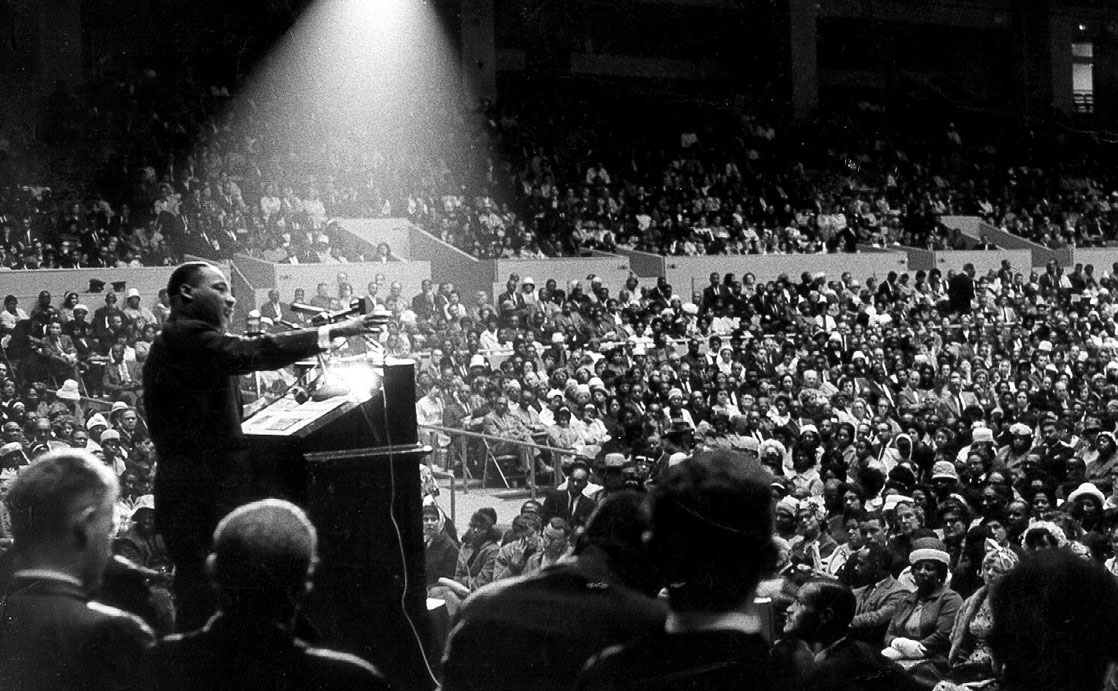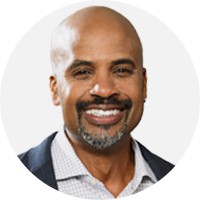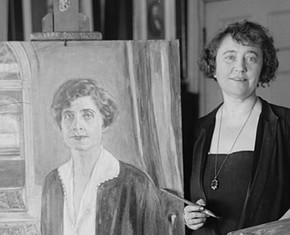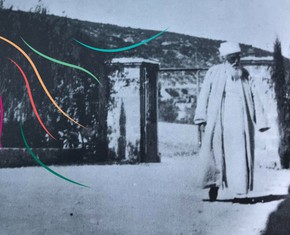The views expressed in our content reflect individual perspectives and do not represent the authoritative views of the Baha'i Faith.
I mark my life through my experiences with art – seminal moments of creative expression so deeply affecting that they altered my understanding of what it means to be human.
For example: the first time I heard Donny Hathaway’s moving rendition of pianist Leon Russell’s sonic masterpiece A Song for You I was just a boy. On a cold and wet winter day in New York City, the grey skies kept me home when normally I would be out running the streets with my friends. My mother clicked on her vintage Pioneer eight track player and this majestic voice full of power and pain filled our small apartment, bathing it in a deluge of melody and rhythm that changed the way I thought about music.
RELATED: That Time Martin Luther King, Jr. Shocked the World
The first time I saw artist Charles White’s stunning lithograph Sound of Silence – a haunting portrait of a young African American boy with the surreal image of a seashell at the core of his being – I was an impressionable high school art student in Newark, New Jersey. I couldn’t move. White’s mastery of light, space, line, color, and thematic substance transfixed me as I marveled at the mystical capacity of a two-dimensional image to cast a spell of astonishment and wonder.

Then, there was the first time I heard a sound that would change my life forever. I was maybe six or seven, I think, and although I can’t fully recall all of the details of that day over forty years ago, I do remember sitting on the shag carpet in the living room of my parents apartment in Miami, Florida watching our portable television set with my brother as a well-dressed and dignified African American man, small in stature, but possessing a booming voice that seemed to rain down from Mount Sinai, spoke to a room full of sanitation workers on the eve of his death in Memphis, Tennessee.
The Reverend Dr. Martin Luther King Jr., was shot and killed nearly a decade before. I was watching archival footage, part of a segment on 60 Minutes, but for me, I heard him for the first time. I could not decipher everything he said. I did not understand the mechanics of racism or grasp the subtleties of language, but I remember the way it made me feel – larger somehow, like the words, which he delivered rhythmically more like a song than a speech, amplified something inside of me I didn’t know was there.
He spoke of parables and prophecy, of freedom and justice, of the majestic power of fellowship and brotherhood, and the destructive vice of selfishness. He spoke of mountains of righteousness and of mighty streams. He spoke of the longevity of life and he even spoke of death. Every phrase, every syllable, every intonation, every rise and fall of his voice projected a melody of metered meaning; a symphony of timeless truths and revelatory insights delivered with captivating power and a boundless love ancient and deep as the universe itself.
The more I listened, the more I felt something shifting in me; a budding awareness – an emerging enlightenment about myself and the world around me. I felt a pride in the reality of his blackness, in the fact that from among the ranks of a community that had suffered so much God would raise such a remarkable human being.
Dr. King’s sepia-toned complexion, not unlike my own, silently affirmed my self worth, a living paradigm of possibility. But I also knew that he was larger than that. I knew somehow that as essential as the black communities of Atlanta and Montgomery were to his formulation; as steeped as he was in the prophetic traditions of the black church; as much as his indomitable will had been forged in the fires of injustice and inequality; he didn’t belong to “us” alone. His commitment to the transcendent reality of truth expressed through his uncompromising devotion to the principle of the oneness of humanity meant that he was “us” and “everyone” at the same time.
When I first learned about the Baha’i Faith years ago, in many ways that first encounter with Dr. King through the medium of television prepared me to embrace the teachings of Baha’u’llah.
King’s message of unity and fellowship – his willingness to sacrifice for those principles and his intentional approach to building sincere relationships across religious and cultural lines – aligned seamlessly with the central goal of the Baha’i Faith and the primary principle of its founder Baha’u’llah. Abdu’l-Baha, the son of Baha’u’llah, made this clear in a talk he gave in 1912 at a Baptist Church in Philadelphia:
All are the servants of God and members of one human family. God has created all, and all are His children. He rears, nourishes, provides for and is kind to all. Why should we be unjust and unkind? This is the policy of God, the lights of which have shone throughout the world. His sun bestows its effulgence unsparingly upon all; His clouds send down rain without distinction or favor; His breezes refresh the whole earth. It is evident that humankind without exception is sheltered beneath His mercy and protection. Some are imperfect; they must be perfected. The ignorant must be taught, the sick healed, the sleepers awakened. The child must not be oppressed or censured because it is undeveloped; it must be patiently trained. The sick must not be neglected because they are ailing; nay, rather, we must have compassion upon them and bring them healing. Briefly, the old conditions of animosity, bigotry and hatred between the religious systems must be dispelled and the new conditions of love, agreement and spiritual brotherhood be established among them.
All men are caught in an inescapable network of mutuality, tied in a single garment of destiny. Whatever affects one directly, affects all indirectly. I can never be what I ought to be until you are what you ought to be, and you can never be what you ought to be until I am what I ought to be … This is the inter-related structure of reality. – Martin Luther King Jr., Letter from a Birmingham Jail
King’s commitment to justice expressed in his powerful oratory as he quoted the biblical prophet Amos: “We will not be satisfied until justice rolls down like waters and righteousness like a mighty stream” has an intrinsic, synergistic compatibility with the teachings of Baha’u’llah:
The essence of all that We have revealed for thee is Justice, is for man to free himself from idle fancy and imitation, discern with the eye of oneness His glorious handiwork, and look into all things with a searching eye.
RELATED: Dr. King and the Baha’i Teachings: The 3 Evils of Society
The concept of unity through diversity, so essential to the Baha’i approach to oneness, was echoed when King said: “We may have all come on different ships, but we’re in the same boat now,” and it blossomed when I read this profound quote from Baha’u’llah:
The tabernacle of unity hath been raised; regard ye not one another as strangers. Ye are the fruits of one tree, and the leaves of one branch.
Little more than a century separated the dawn of the Baha’i revelation in 1844 and the appearance of Dr. Martin Luther King Jr. on the national stage during the Montgomery bus boycott of 1955. I have been a Baha’i for nearly thirty years now, and each morning when I read the sacred Baha’i writings and my heart is moved by the power and authority of Baha’u’llah’s teachings, I am reminded of the towering example of the life and legacy of one who gave his life for freedom and human dignity.
In those moments I can hear that voice echoing the spirit of Baha’u’llah’s divinely revealed revelation – a soulful call and response across time and place bound together by the transcendent nature of truth and with the timeless virtue of justice, by the incontrovertible reality of an interdependent humanity: “We must live together as brothers, or perish together as fools.” – Martin Luther King Jr.
















Comments
Sign in or create an account
Continue with Googleor